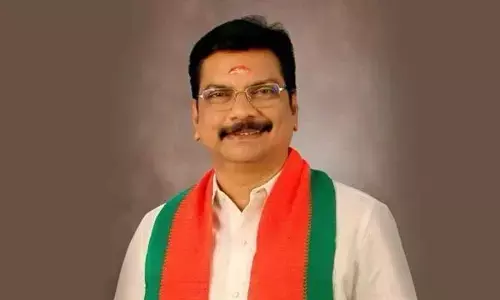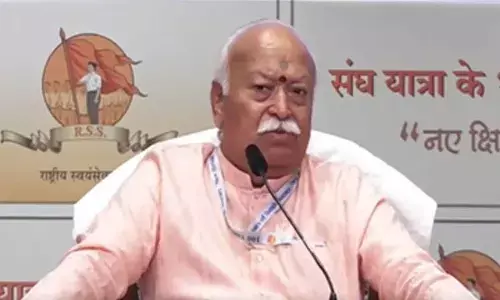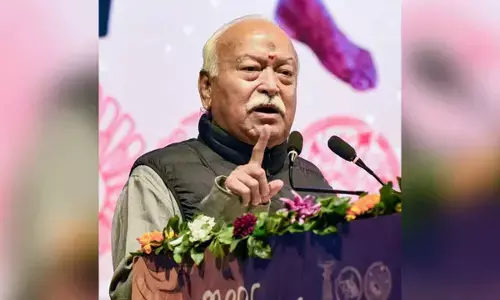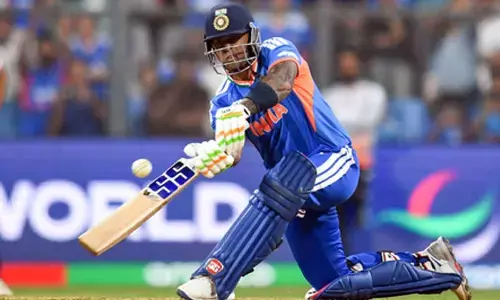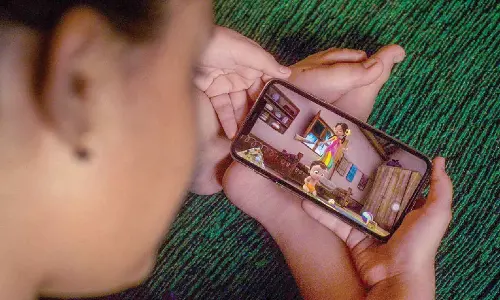Translation a local text in a global character
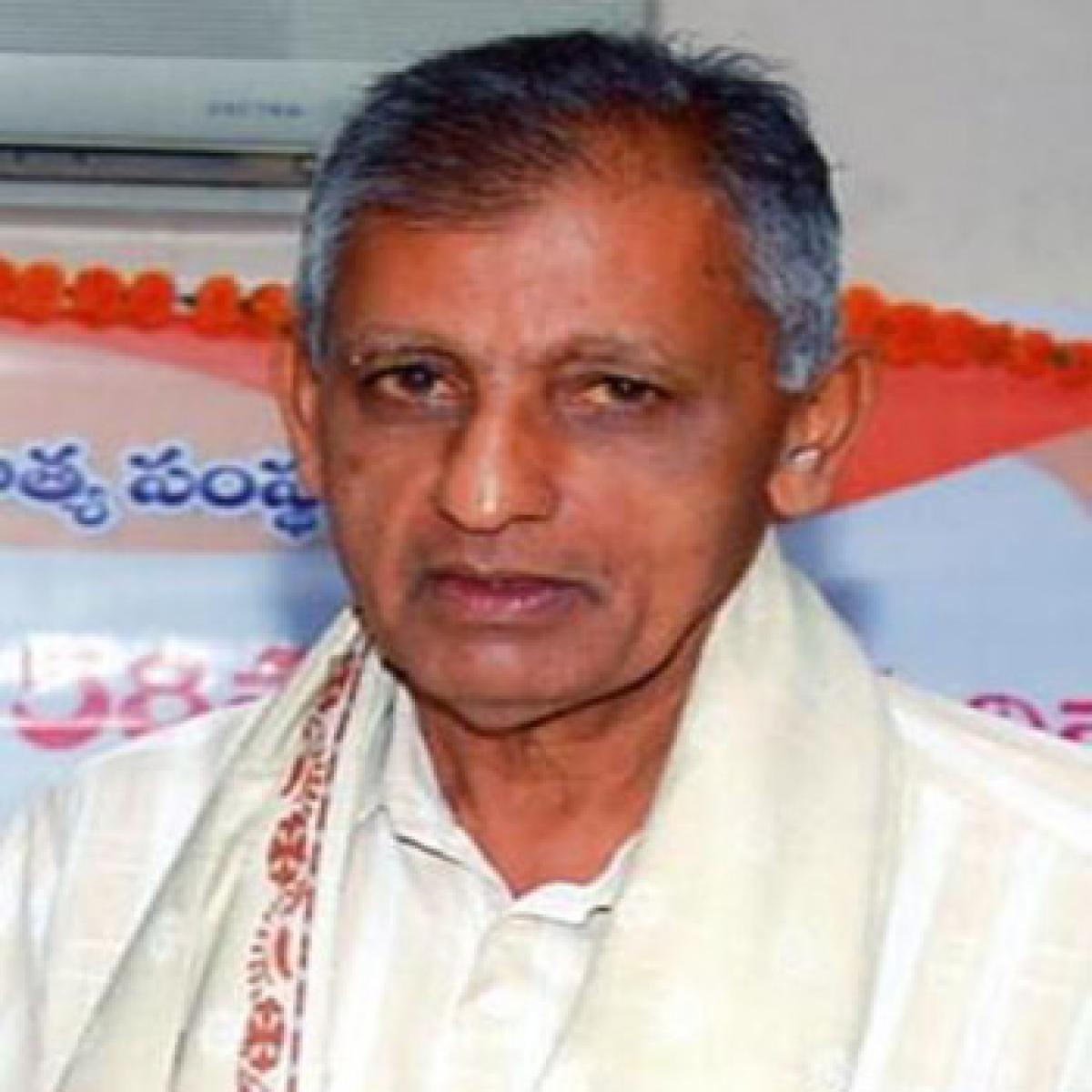
In the last quarter century, Telugu literature witnessed a spate of translations to and from Telugu to Malayalam. Lakshmanayyar Ramaswami better known as LR Swami is the man behind the momentum. Apart from writing more than 200 short stories in Telugu and four published anthologies, Swami chipped in with time-consuming work of translation, for passion and love for the literature.
LR Swami, who was awarded the Sahitya Akademi award for Telugu translation speaks about the pertinent issues plaguing Telugu literature translation
In the last quarter century, Telugu literature witnessed a spate of translations to and from Telugu to Malayalam. Lakshmanayyar Ramaswami better known as LR Swami is the man behind the momentum. Apart from writing more than 200 short stories in Telugu and four published anthologies, Swami chipped in with time-consuming work of translation, for passion and love for the literature.
In the process, he translated 17 works into Telugu from Malayalam, and 13 works from Telugu to Malayalam. Sahitya Akademi recognised his role as a multi-lingual writer, translator, and scholar and bestowed him with the Sahitya Akademi Award for Telugu translation (‘Sufi Cheppina Katha’) of Malayalam novel ‘Sufi Paranja Katha’ by Raman Unni, for the year 2015. Swami shared his views and future plans, on the occasion of Akademi’s announcement of ‘Translation Prize-2015’ in an exclusive tête-à-tête with Rama Teertha.
Excerpts:
Did you begin your journey as a short story writer and as a translator at the same time?
No, I did not. First I started writing my original stories in Telugu, and only after a decade or so, I did some translation works without much liking for such exercise. As my job at Visakhapatnam demanded that I should be well versed in the local dialect, I learnt the language and I used to read Telugu magazines and periodicals with avid interest.
Since at Visakhapatnam, Malayalam Books were not available in those times, and I did not develop a strong liking for English Books, my inclination was naturally towards the Telugu books. One day on the night shift in the factory there was a strong discussion about Telugu stories, and in the course of exchange of ideas, some colleagues questioned my ability comment upon a Telugu story. Being a man not knowing literary Telugu, and to answer them, I wrote a story (in 1988) and dispatched to Andhra Jyothi Weekly, which was then conducting a short stories competition.
My story won a prize, and thus my confidence as a writer, who can try his hand at stories, has received a shot in the arm. My original stories kept appearing, and once Sahitya Akademi asked me to translate Malayalam folk songs (Compiled by Ayyappa Panikkar) from Malayalam to Telugu. The translation went well, and as a Sahitya Akademi publication, the book saw the light of the day.
This followed by a specific request by reputed poet K Sachidanandan to translate his 96 poems compilation into Telugu. Although I took some time, I completed this work, which made me stand in good stead and improved my reckoning as a potential translator between two important south Indian languages.
Tell us about your early writings in Malayalam.
Although I was trying my hand at writing poetry since the eighth standard, my first writing, a single act play was published in the school souvenir when I was a Class X student. And it bagged the first place in the competition. My early works number more than 100 and most of them have appeared in ‘Matrubhoomi’ and ‘Malayala Manorama’ in those days.
Did any author inspire you in your formative years?
The entire Malayalee society of that leisurely era has influenced me. In those days, in villages and towns, encouraging ambience used to exist about the literature. Teachers and elders have always had time to explain the nuances and complexities of great works of literature. Malayee writer Kunhiraman Nair had influenced me to some extent. To a man with a poetic heart like me, the ambience only bolstered my interest toward the entertaining and enlightening medium of writing.
When you were writing stories in Telugu, have you thought of a future career as a translator?
No. While completing the first few assignments of translation also, I never thought of making any sustaining impression in the field of translation. I took them one opportunity at a time and concentrated on completing it in a competent manner. The translation offers came one after the another and I too went on attending the job with diligence.
Tell us about the Malayalam book ‘Sufi Paranja Katha’ which you translated into Telugu.
This novel appeared in 1993 and caused a sensation. It was written by KP Ramanunni, a noted writer. The novel had many impressions and in a short time, it was translated into English, French and Kannada languages. In tracing the troubled past of the people who change faith due to political turmoil, and explaining the process of interfaith and intra-faith conflicts and harmonies, drawn as a tug of war between significant communities.
The novel portrays the human sexuality when it faces odds. The narrative had a grip and the story flow is natural, which made me translate the novel for Telugu readers. The novel had a truly global collaboration the way it came to light. An original Malayam novel, made into Telugu, the publication of which was supported by Telugu Diaspora (Kalpana Rentala, in the USA) through the Saranga Publications brought the book into the hands of Telugu readers and now I am happy that Sahitya Akademi has recognised the merit of the work.
Tell us about the authors you have translated and introduced in both the languages?
The Malayalee authors are Sri Narayana Guru, Akkittam Atchutan Namboodiri, K Sachchidanandam, ONV Kurup, KP Ramanunni, Setu, Zacharia, C Radhakrishnan, and stories of writers Tagali Siva Sankar Pillai, Kaarur, Basheer, Santosh Eichhikaanam, Vaisakhan, KR Meera, Pomkannum Varki, etc.
Likewise, from Telugu, I have translated the works of Gurajada Apparao, Chaganti Somayajulu, Sri Sri Mongraph, Sivareddy’s poems, N Gopi’s poetry, stories of Ketu Visvanatha Reddy and Saleem. Also a period criticial work ‘Andhra Vagmaya Charitra’ by Divakarla Venkatavadhani.
How to achieve improvement in the field of translations in Telugu literature?
Unlike the past, now the number of translations has increased in Telugu, which is a good sign. One has to develop skills and competency in both the source and target languages and watch the society for evolving vocabulary, to use in the translation so that the work becomes interesting to the readers in the targeted language. For this constant cultural acclimatisation with a will to innovate, remains the need of the hour for betterment in our translations.
Any translation works in hand?
Presently I am working on a Malayalam-Telugu dictionary at a very rudimentary stage. And a translation work of K Sachidanandan’s poems is completing on my table.
What is the role of literature and works of translation in life?
Life is undoubtedly influenced by literature and this can be said vice versa too. Literature in translation that comes to our doorsteps helps us to understand the ways people live at distant shores and their daily tasks. It makes us more human,
for we develop an awareness that sharing is lessening the burden and translation unburdens a community and passes on the weight to the shoulders world societies and demands them to understand the human condition. Therefore, translation is a local text of a global character, and the more responsible and deft the translator is, the more justice is done to the translation.








